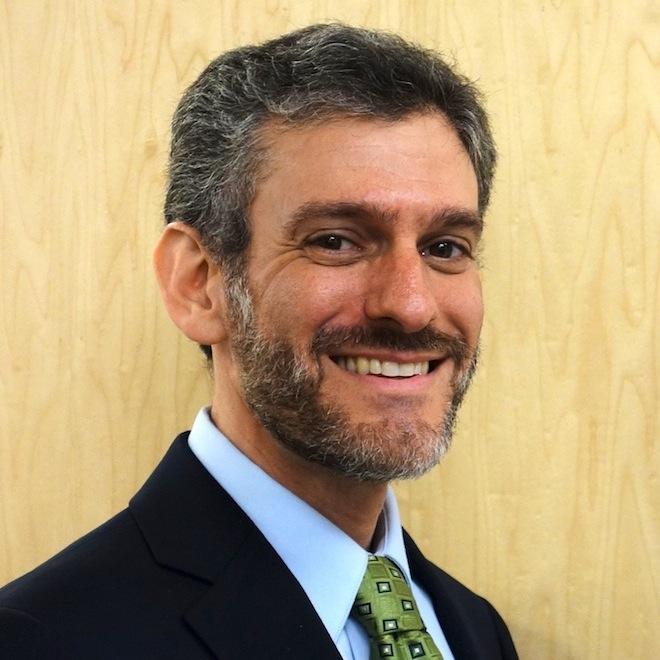New Sustainability Vice President Emphasizes the Power of Collective Effort
NYU’s newly appointed Vice President of Sustainability Cecil Scheib.
February 15, 2018
Improving sustainability is a daunting task. Living sustainably means using the Earth’s resources in a way that doesn’t harm the environment and ensures resources will be available to future generations. At NYU, the challenge of handling this widespread issue lies in the hands of the Office of Sustainability, with newly appointed Vice President Cecil Scheib, former director of Energy and Sustainability.
Despite his relatively recent appointment to this position, Scheib has clearly put his foot on the pedal in terms of developing sustainability efforts at the university and has plans for how the Office of Sustainability will work toward its goals moving forward.
“The office works on broader sustainability issues, including working with faculty and students as well as campus-wide sustainability planning and strategy,” Scheib said in an interview with WSN. “We’ll continue to save energy, promote recycling and continually improve our dining and transportation systems.”
According to Scheib, NYU has cut its carbon emissions, energy and water use 30 percent since 2006, its baseline year.
“The exciting part about those reductions is that almost any building in New York could do what we did,” Scheib said. “There was no rocket science, we didn’t start off as unusually high energy users, and this was even before the new cogen plant opened. It was just cutting waste.”
In order to improve sustainability, NYU started a composting program, improved recycling and waste diversion, added green roofs, started a bike share and helped dozens of members of the community launch their own projects through NYU’s Green Grants program. NYU has buildings across campus that are Leadership in Energy and Environmental Design certified, a system that rates building’s sustainability.
Some of the challenges NYU faces with sustainability include its large student body and the height of its buildings. The university’s tall buildings complicate everything from solar power to recycling, according to Scheib.
“On the other hand, we have little wasted space and can heat and cool buildings very efficiently,” Scheib said. “And many more people walk or use mass transit to get to campus than use cars.”
Environmental Studies Professor Eugenia Naro-Maciel highlighted some of the ways in which NYU can be more sustainable, beyond just reusing, reducing and recycling.
“We can reduce our use of water, our purchasing of clothing, we can start bringing our own cups and utensils to reduce the number of disposables thrown away in cafeterias,” Naro-Maciel said.
She also had some ideas for increasing the collective effort of students.
“It would be interesting to have a network of all the different student eco-clubs,” she said.
We can expect to see more impressive initiatives coming from the Office of Sustainability.
“Our commitment is to cut carbon emissions by 50 percent by 2025,” Scheib said. “Given our size and how many complex uses our buildings have, that’s a massive achievement that will inspire our city, nation and the world.”
According to the Sustainability vice president, NYU will work to address water usage, waste, transportation and air quality among other issues. Scheib thinks that individual contributions certainly make these goals easier to achieve.
“By promoting a culture that values sustainability, we will help students absorb those values and lessons for their life after NYU,” said Scheib. “They can then bring awareness to the professions they choose and the communities that they will ultimately inhabit.”
Email Alessia Garcia at [email protected].





























































































































































